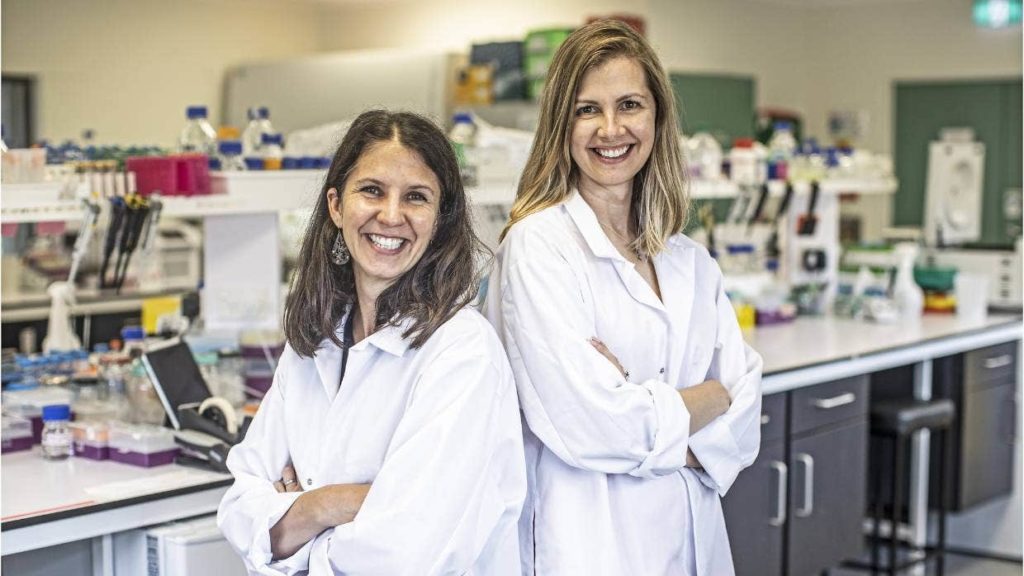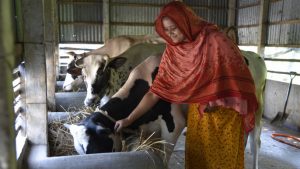Irina Miller and Dr Nikki Freed are the founders of Daisy Lab, a precision fermentation company which has just received $250,000 in start-up funding from Stephen Tindall’s K1W1 and Icehouse ventures.
Precision fermentation is a process in which microorganisms are prompted to create different substances when breaking down sugars in the fermentation process.
Daisy Labs will use precision fermentation to train microorganisms to produce casein, a protein which naturally occurs in the milk of mammals, and the secret ingredient in the stretch and flavour of cheese.
Miller is a business consultant who previously worked for Fonterra, and Freed is a molecular biologist and the genomics lead at the University of Auckland.
During her time at Fonterra, Miller became interested in precision fermentation but did not start her own business at the time because she thought everyone would want to do it.
But when no one in the country had by 2020, she decided to give the new technology a go herself and started Daisy Labs.
The business is focusing on creating casein, a protein which will allow vegan food products to have the same sensory impact as real dairy products.
“There is a lot of potential for this process. You can ‘veganise’ any product that is traditionally dairy without changing anything for the consumer,” Miller says.
The microorganisms are “trained” to create casein by putting the DNA profile of a milk-producing cow into their cellular structure.
Freed says while it sounds complicated, the process is similar to the age-old technique of traditional fermentation.
“We are just trying to make a protein that has the same profile as the stuff you get from a cow, except more cost-efficient and better for the environment,” Freed says.
The end result will be a vegan product with the signature stretch and tang of dairy cheeses. Which is something vegan food providers have been trying to replicate for decades.
Alice Shopland, managing director of vegan food company Angel Food, says cheese is the holy grail of vegan food products.

“Cheese is almost emotionally important to people. It is salty, fatty and tasty and has become quite a dominant ingredient in so many dishes,” Shopland says.
And cheese is not just popular because of its taste, it is also physically addictive, she says.
The casein protein found in milk is converted to casomorphins compounds by the body. These compounds trigger the dopamine receptors in your brain, making you feel good.
“Dairy cheese is concentrated cows milk so the amount of casomorphins in it is also concentrated. You won’t get withdrawals symptoms, it is not heroin, but there is a chemical link between pleasure and cheese,” Shopland says.

While Angel Food cheese does not use precision fermentation (its cheese is made with a combination of vegetable starch and coconut oil), the business has seen a rising awareness of veganism.
“Until recently our products were only eaten by people who were determined not to eat dairy products. But with technology and growing awareness of a plant based diet the market is broadening.”
Shopland says the biggest market for vegan food is not vegans, but “flexitarians”, consumers who want to make environmentally positive dieting choices while not committing to a wholly plant based diet.
“Because of that, the pressure is on to make your product attractive to someone who may be buying vegan cheese one week, and dairy cheese the next.”
The prospect of casein protein being developed in New Zealand could mean vegan products are better able to directly compete with dairy cheeses, she says.
Emma Wheeler, head of strategy at food logistics company Trust Codes, says lab grown proteins have some way to go before gaining consumer trust.
“It is important to look at this from the consumer perspective, and what is driving them to purchase alternative food products. Someone may be choosing the products for animal cruelty, or sustainability or for health reasons, and a lab produced protein may not tick all of those boxes for people,” Wheeler says.

Wheeler says people choosing a vegan diet for health reasons may not feel comfortable with food that is largely made in a lab.
She also says it will be extremely hard for the lab-based proteins to scale up to the size of major dairy producers.
“I think we will end up seeing a hybrid approach where we do have farms producing animal proteins, with alternative protein through fermentation as complimentary to standard dairy. I don’t think it is going to take over.”
Mark Piper, director of strategy and innovation at Fonterra, says the dairy giant is keeping a close eye on emerging technology such as precision fermentation.

Piper says he doesn’t see the technology taking over traditional milk and cheese, and that dairy and non-dairy products will still be able to happily co-exist.
“As always we follow the consumer and believe that while there will be a place for lab grown dairy analogues, there will also continue to be a strong place for natural, grass-fed dairy,” he says.
Dr Freed says Daisy Labs hopes to be producing lab-grown casein by the end of this year.













